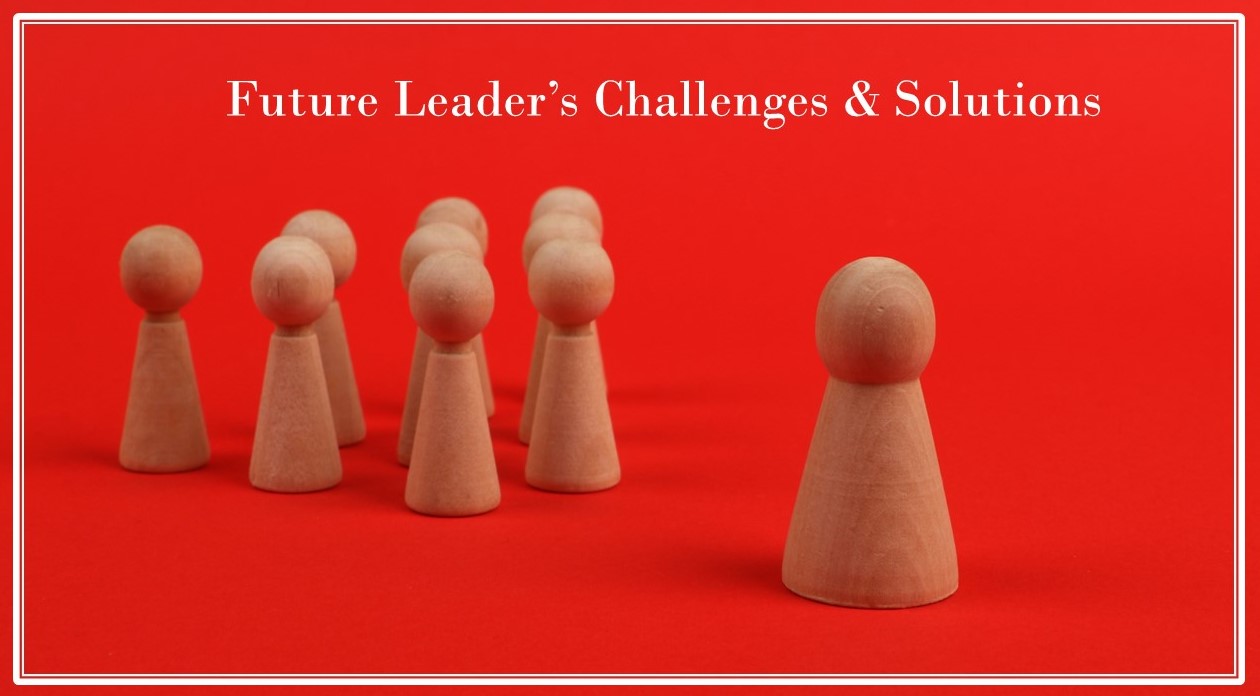
As many things around us are changing faster and more furiously, it is impacting and rewiring the way we live and work and it doesn't show any signs of slowing down any time soon. It has also impacted leadership in many ways, so we as leaders need to embrace change and evolve. Leaders can't afford to lead in a vacuum (i.e. Leaders can't be stubborn and hold on to how things used to be) Instead, we should be first and ready to embrace new trends and mindsets.
"In a time of drastic change, it is the learners who inherit the future. The learned find themselves equipped to live in a world that no longer exists" - Eric Hoffer, quoted in on becoming a leader.
Part of being a successful leader is self-awareness and situational awareness (i.e. paying attention to what's happening around us, keeping an eye on the latest trends, and what's coming down the pipeline), so we can adjust and deliver better experiences and inspiration to our teams.
Today's leaders must understand the five main trends shaping our work and the future of our work.
- Globalization and Mobility : The Digital or Digitalisation has disrupted and removed the barriers of doing business, (i.e. anytime, anything(device) and anywhere in the world.) so leaders need to embrace this change. One of the best use cases to apply this to is to win a war on talent. We should draft and define policies to hire talent from any part of the world instead of being fixed to a limited geographical area.
- Changing Demographics : In today’s workplace, it might not be uncommon to see employees of multiple generations working side-by-side. Our character traits and work habits are shaped by our personalities, not by our age, but as leaders we need to understand some of the historical and social influences that would impact each generation to lead them better.
- Technology : Leaders needs to motivate and adopt the following trends to reimagine the future.
- Stack strategically : Architecting a better future in a new era of competition is dawning on organisations to compete on their architecture
- Mirrored World : The power of massive, intelligent, digital twins. Growing investments in data, AI, and digital twin technologies are giving rise to a new generation of business and intelligence.
- I, Technologies : The Democratization of Technology. Natural language proessing (NLP), low code platforms, robotic process automation, etc. are democratizing technology, putting powerful capabilities into the hands of people all across the business.
- Anywhere Everywhere : Bring your own environment. It's time for enterprises to transform remote work from an accommodation to an advantage.
- From Me to We : A Multiparty System's path through chaos. The global disruption of COVID-19 ignited a scramble for enterprises to reimagine their partnerships which led to multiparty systems gaining new found attention.
- New behaviors : The COVID-19 pandemic forced us to think differently about work and life. Leaders need to cultivate four qualities: awareness, vulnerability, empathy and compassion, which are all critical behaviors that assist in leading people. Below are some practice suggestions for these behaviors that can help illicit better leadership:
- Uncover and integrate what you feel : A bias toward control may be a natural response to crisis, but it risks shutting off awareness of one's own and others' feeling and emotional needs. A first step to effectively tune inward is to create time and space within the work schedule and work space for self-connection and self-awareness.
- Practice gratitude daily : Another simple practice is to share a sense of gratitude. Research has found that gratitude that is shown towards people in the workplace improves mental health, renews energy, provides hope, and encourages self-improvement. Committing to expressing gratitude to someone at least once a day or write gratitude letter to someone in your team can go a long way.
- Open yourself to others' expressions of care : Open yourself up to others' empathy and compassion. Sharing your emotions in response to caring words and acts takes away vulnerability. It will help maintain your own emotional stability and build up a close support network that is insurmountable in value, especially during turbulent times.
- Turning outward to connect with others : Tuning into yourself will improve your ability to listen to others, alleviate their fear and anxiety, and enable them to move forward. Awareness of what others are feeling, and role modeling vulnerability, empathy, and compassion during a crisis has been shown to lower stress and also improve team goal achievement and productivity.
Conclusion :
Whether leaders like it or not, these trends will impact every aspect of work going forward from now into the future. Organizations and leaders that ignore these trends and keep doing what they've always done can run the risk of becoming obsolete and being replaced. To stay ahead of trends, leaders need to get out of comfort zone and be open and get out of the office and talk to people, build relationships with colleagues across the company and their respective industry, as well as ask questions, be curious and continously learn. Future leaders need to adjust their leadership style to ensure success.
About the author
 |
I am Balasubramanian Ranganathan, otherwise known as Bala; a loud-mouth evangelist on the topic of engineering softwares and leadership. I work for LPL Financial, an independent broker-dealer in United States, where I manage and lead quality engineering practice teams. My main interest is around understanding how to design software systems and platforms, develop and deploy solutions, and use my capabilities to maximize value. While doing this, I've look to understand the patterns of good software architecture, and also the processes that support software design. |
Connect Or Follow
YouTube Subscribe | LinkedIn | Facebook
